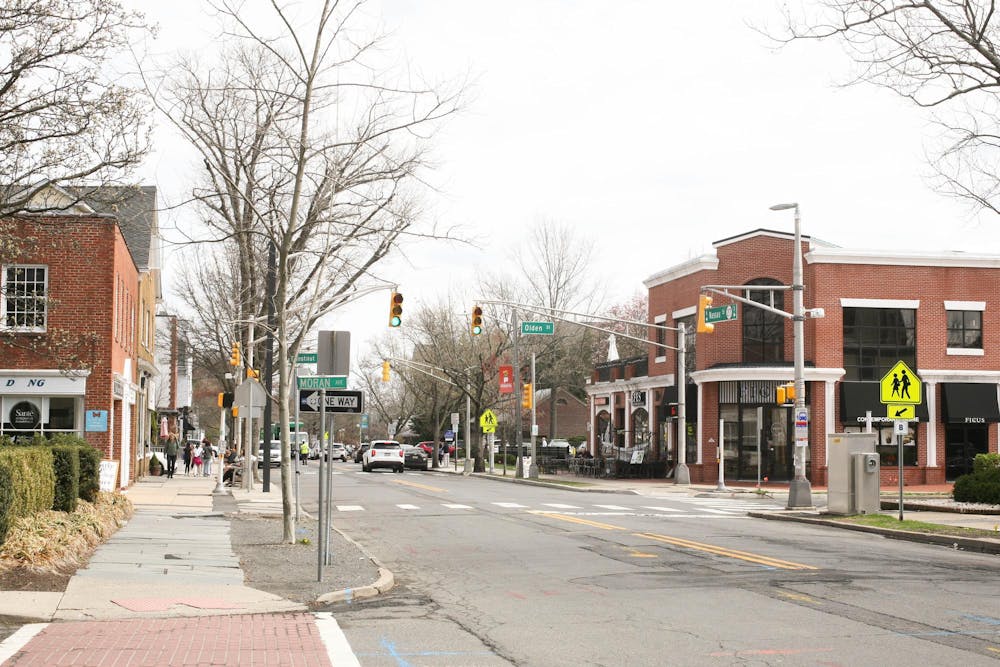The Princeton Town Council will vote Monday on borrowing $6.3 million for sewage repairs throughout most of northern Princeton after awarding construction contracts to a N.J. company in late August.
The money will be loaned from the Construction Financing Loan Program of the New Jersey Infrastructure Bank. The town council previously authorized borrowing money for sewage repairs in June 2023 and June 2024.
Sewage is an ongoing topic of discussion for the municipality. Earlier this year, Municipality Chief Financial Officer Sandra Webb cited sewage contributions as one of the primary reasons behind the municipality’s increased budget and taxing. Additionally, the 2025 municipality budget newsletter cited “inflationary pressures on payments for … sewerage treatment” as one of the factors impacting the budget.
The municipality’s 2025 budget also shows that the sewer system expenses increased by $154,981 from 2024 to 2025, from $1,297,545 to $1,452,526 — the second highest compared to the other municipality Public Works departments.
The $6.3 million loan to be voted on concerns the Mini-System #36 Sewer Rehabilitation Project, which serves the area bounded by John Street, Ewing Street, Mount Lucas Road, and Quarry Street.
The project is intended to reduce the amount of money Princeton pays for wastewater treatment. According to a recent draft budget, the funding appropriated for the Stony Brook Regional Sewerage Authority (SBRSA) increased by $211,863 from 2024 to 2025. The SBRSA is a facility concerned with “treating and disposing of wastewater and its byproducts in an environmentally and fiscally responsible manner.” The SBRSA is partly funded by municipal taxes.
“Princeton currently pays to treat more wastewater than residents and businesses actually produce. By reducing the amount of clean groundwater that enters the sanitary sewer system, Princeton will be able to reduce the costs associated with wastewater treatment,” the Mini-System #36 sewer project’s website reads.
Another impact of the project will be fortifying the sewer pipes by sealing them, with the goal of forestalling “more invasive” infrastructure improvements in the future.

Repairs will include physical repairs on the pipes, primarily by injecting a non-toxic chemical grout to fix the joints and cracks of the sewer pipes to eliminate groundwater leaking into the sewer system.
The town council will also be voting today to approve the sanitary sewer replacement on Hamilton Avenue — a project that could cost the municipality up to $409,670.
The University, one of the the municipality’s largest single taxpayers, pledged in January 2024 to donate $50 million over five years to the municipality for infrastructure projects and agencies supporting lower-income residents. $28.2 million of this was intended for unrestricted municipality use and $11.35 million for supporting specific infrastructure projects.
Last year, the University paid $8.8 million in municipality property and sewer taxes, and also made $10.8 million in voluntary contributions to the municipality — $4 million of which was dedicated for sewer infrastructure repairs. 2024 was the first year in which the University donated money explicitly for sewer system maintenance, apart from paying property and sewer taxes.

The approval for these resolutions will be voted on at 7 p.m. on Sept. 8.
Luke Grippo is an assistant News editor for the ‘Prince.’ He is from South Jersey and usually covers University and town politics, on a national, regional, and local scale.
Please send any corrections to corrections[at]dailyprincetonian.com.








